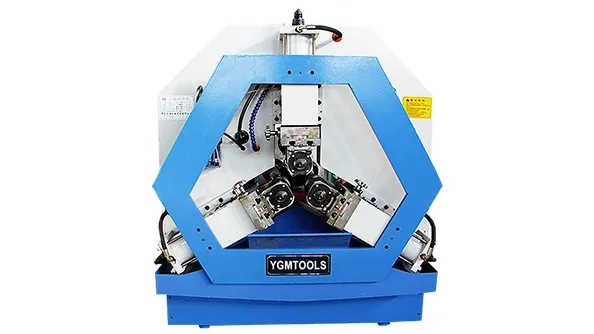
-
 Afrikaans
Afrikaans -
 Albanian
Albanian -
 Amharic
Amharic -
 Arabic
Arabic -
 Armenian
Armenian -
 Azerbaijani
Azerbaijani -
 Basque
Basque -
 Belarusian
Belarusian -
 Bengali
Bengali -
 Bosnian
Bosnian -
 Bulgarian
Bulgarian -
 Catalan
Catalan -
 Cebuano
Cebuano -
 Corsican
Corsican -
 Croatian
Croatian -
 Czech
Czech -
 Danish
Danish -
 Dutch
Dutch -
 English
English -
 Esperanto
Esperanto -
 Estonian
Estonian -
 Finnish
Finnish -
 French
French -
 Frisian
Frisian -
 Galician
Galician -
 Georgian
Georgian -
 German
German -
 Greek
Greek -
 Gujarati
Gujarati -
 Haitian Creole
Haitian Creole -
 hausa
hausa -
 hawaiian
hawaiian -
 Hebrew
Hebrew -
 Hindi
Hindi -
 Miao
Miao -
 Hungarian
Hungarian -
 Icelandic
Icelandic -
 igbo
igbo -
 Indonesian
Indonesian -
 irish
irish -
 Italian
Italian -
 Japanese
Japanese -
 Javanese
Javanese -
 Kannada
Kannada -
 kazakh
kazakh -
 Khmer
Khmer -
 Rwandese
Rwandese -
 Korean
Korean -
 Kurdish
Kurdish -
 Kyrgyz
Kyrgyz -
 Lao
Lao -
 Latin
Latin -
 Latvian
Latvian -
 Lithuanian
Lithuanian -
 Luxembourgish
Luxembourgish -
 Macedonian
Macedonian -
 Malgashi
Malgashi -
 Malay
Malay -
 Malayalam
Malayalam -
 Maltese
Maltese -
 Maori
Maori -
 Marathi
Marathi -
 Mongolian
Mongolian -
 Myanmar
Myanmar -
 Nepali
Nepali -
 Norwegian
Norwegian -
 Norwegian
Norwegian -
 Occitan
Occitan -
 Pashto
Pashto -
 Persian
Persian -
 Polish
Polish -
 Portuguese
Portuguese -
 Punjabi
Punjabi -
 Romanian
Romanian -
 Russian
Russian -
 Samoan
Samoan -
 Scottish Gaelic
Scottish Gaelic -
 Serbian
Serbian -
 Sesotho
Sesotho -
 Shona
Shona -
 Sindhi
Sindhi -
 Sinhala
Sinhala -
 Slovak
Slovak -
 Slovenian
Slovenian -
 Somali
Somali -
 Spanish
Spanish -
 Sundanese
Sundanese -
 Swahili
Swahili -
 Swedish
Swedish -
 Tagalog
Tagalog -
 Tajik
Tajik -
 Tamil
Tamil -
 Tatar
Tatar -
 Telugu
Telugu -
 Thai
Thai -
 Turkish
Turkish -
 Turkmen
Turkmen -
 Ukrainian
Ukrainian -
 Urdu
Urdu -
 Uighur
Uighur -
 Uzbek
Uzbek -
 Vietnamese
Vietnamese -
 Welsh
Welsh -
 Bantu
Bantu -
 Yiddish
Yiddish -
 Yoruba
Yoruba -
 Zulu
Zulu
Custom Reed Thread Rolling Machines for Precision Manufacturing Solutions
Understanding Custom Reed Thread Rolling Machines
In the world of manufacturing, precision and efficiency are the keys to success. Among various techniques employed in producing high-quality threaded components, thread rolling stands out due to its ability to create durable, precise threads without the typical issues associated with traditional machining processes. One area where thread rolling has seen significant innovation is in custom reed thread rolling machines.
What is Thread Rolling?
Thread rolling is a forming process that uses hardened dies to shape materials into threads. Unlike cutting processes that remove material, thread rolling displaces the material, resulting in stronger and more precisely formed threads. The method is particularly suited for mass production as it not only enhances the thread quality but also increases the overall strength of the workpiece by achieving a finer grain structure in the rolled area.
The Importance of Customization
The manufacturing industry is becoming increasingly specialized. As companies strive to develop niche products and cater to specific customer needs, the demand for custom machinery, including thread rolling machines, has surged. Custom reed thread rolling machines are designed to meet unique specifications that off-the-shelf solutions cannot address.
Customization allows manufacturers to modify the dimensions, shape, and performance characteristics of the thread rolling machines to align with their specific production requirements. For instance, a company specializing in the production of reed valves for high-pressure applications might require machines capable of threading various materials, including stainless steel or titanium, while ensuring ample strength and durability.
Features of Custom Reed Thread Rolling Machines
1. Adjustable Die Design Custom reed thread rolling machines often come with adjustable dies, allowing manufacturers to change the thread profile rapidly. This feature is indispensable for businesses that offer a variety of products with different threading needs.
custom reed thread rolling machines

2. High-Speed Production Automation of thread rolling processes is a significant benefit of advanced machines. Custom designs can integrate high-speed capabilities to improve production rates without compromising quality.
3. Material Versatility Depending on the end application, custom machines can be built to handle a variety of materials, from softer metals to harder alloys. This versatility enables manufacturers to remain competitive in diverse markets.
4. Energy Efficiency Custom machines can be optimized for energy consumption, reducing operational costs and minimizing environmental impacts, which is increasingly vital in today’s eco-conscious market.
5. Enhanced Monitoring and Control Modern custom thread rolling machines often come equipped with advanced monitoring systems. These systems allow for real-time quality control, ensuring that every component meets the required specifications.
Benefits of Custom Reed Thread Rolling Machines
- Enhanced Quality The consistent and precise nature of thread rolling contributes to the production of superior quality threaded components, essential for industries such as automotive, aerospace, and medical devices. - Reduced Waste Since thread rolling displaces material rather than removing it, there is significantly less waste produced compared to traditional threading processes. This efficiency translates to cost savings and better resource management.
- Increased Production Efficiency Batch production can be streamlined thanks to the automated features in custom machines. This leads to shorter lead times and a higher throughput, which is crucial in maintaining competitiveness.
Conclusion
In conclusion, custom reed thread rolling machines play a vital role in modern manufacturing processes. By enabling versatility, enhancing efficiency, and improving product quality, these machines help manufacturers meet the rising demands within various industries. As technology evolves, the opportunities for customization in thread rolling will likely expand, providing manufacturers with even more tools to innovate and elevate their production capabilities. Investing in custom solutions not only addresses immediate threading needs but also positions companies to adapt to future challenges in a competitive market.
